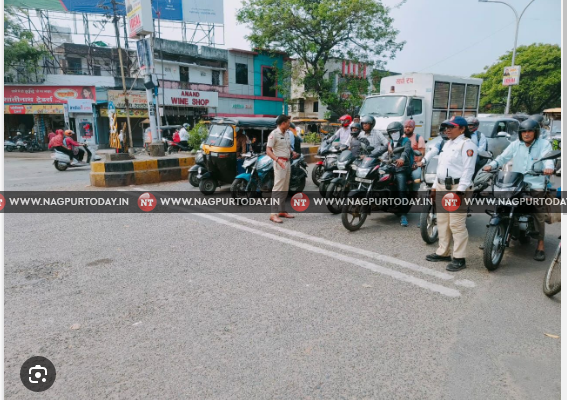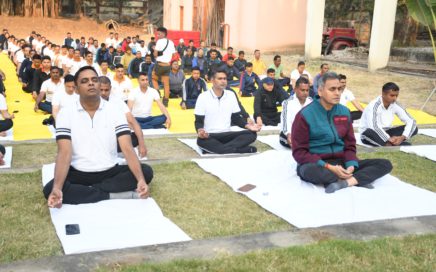Nagpur: Traffic signals are an integral part of road safety, designed to streamline vehicular movement and reduce the need for manual intervention. However, in Nagpur, the very purpose of traffic signals appears to be undermined. A common sight across the city is police personnel stationed at intersections, manually directing traffic — a job signals are supposed to handle. This raises a pertinent question: Why install traffic signals if police personnel have to do the job?
Nagpur boasts an extensive network of traffic signals at major junctions, aimed at ensuring orderly vehicular flow. Ideally, motorists should abide by these signals, demonstrating responsibility and respect for the law. Yet, reality paints a different picture. At almost every signal, police personnel can be seen manning the traffic, often intervening even when the signals are functional.
This situation begs two critical questions:
1. Are motorists blatantly flouting traffic rules?
2. Or are the traffic cops redundant, using signals as mere decorative installations?
Lawlessness on the roads
A closer look reveals a culture of disregard for traffic norms. Many motorists, especially two-wheeler riders, jump red lights, weave through vehicles, and ignore pedestrian crossings. This brazen violation of rules not only disrupts traffic flow but also puts lives at risk.
Despite repeated awareness campaigns and fines, the lack of civic discipline among some drivers forces authorities to deploy personnel at signals to enforce compliance.
Overburdened or underutilized Cops?
The constant presence of traffic police at signals raises another concern — are law enforcement resources being underutilized? While traffic management is crucial, the same personnel could be addressing other pressing issues like road safety audits, accident investigations, and managing congestion hotspots. Instead, they are often seen waving hands and blowing whistles at signals, performing tasks that traffic lights are designed for.
Challenges in Nagpur’s traffic management
Several factors contribute to this paradox:
1. Lack of trust in automation: Faulty or poorly timed signals make drivers impatient, leading to chaos that necessitates manual intervention.
2. Insufficient surveillance: The absence of robust systems like CCTV monitoring or automated penalty mechanisms emboldens violators.
3. Pedestrian neglect: At many signals, pedestrian safety measures like zebra crossings and walking phases are either absent or ignored, adding to the confusion.
To address this issue effectively, Nagpur needs a multi-pronged approach:
• Strict enforcement: Deploy automated systems like cameras to penalize violators without relying on manual observation.
• Public awareness: Conduct regular campaigns to instill respect for traffic laws and highlight the risks of non-compliance.
• Signal modernization: Upgrade traffic signals with smart technology to adapt to real-time traffic flow, reducing delays and frustration.
• Pedestrian safety: Improve infrastructure and ensure pedestrian zones are respected by vehicles.
Nagpur’s traffic signals are a symbol of a larger issue — a lack of discipline and trust in systems designed to improve urban mobility. Until motorists begin adhering to rules and signals are optimized for efficiency, the city will remain stuck in a loop of chaos, with traffic cops left to act as stopgaps for a system that should function independently.
This is not just a question of traffic management but a reflection of societal attitudes toward law and order. The path to change begins with individual responsibility. Will Nagpurians rise to the challenge?















